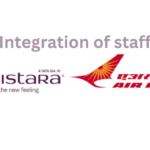Did you know that the biggest challenge for HR professionals in terms of hiring and retaining talent, across companies in the US, is training new joinees and updating in-house skills? Does that mean HR professionals in the US prefer to retain and retrain talent than onboard workers for emerging roles?
A recent study by Wiley, ‘Closing the skills gap – Employer perspectives on educating the post-pandemic workforce’ reveals that while looking at ways to retain employees over the next three years, HR professionals in the US are most worried about updating skills as roles evolve. A significant 48 per cent of the 600 HR professionals and hiring managers surveyed are concerned about updating skills, while 43 per cent worry about providing a flexible work environment. Rising compensation costs are a cause of concern for 43 per cent. That means, HR professionals prefer to retain and retrain their talent than hire and onboard new employees for emerging roles.
Although 48 per cent of firms address their skills gap by hiring candidates and about 41 per cent rely on contractors, a whopping 65 per cent resort to upskilling or reskilling employees.
Unfortunately, 41 per cent of the respondents’ efforts did not really fructify due to lack of employee development initiatives and 38 per cent lacked in-house training resources.
About 41 per cent of the respondents are concerned about offering a competitive benefits package, while 41 per cent are worried about having internal growth opportunities/career pathing .
In the last two years, worries about the skills gap have grown at various levels in the organisation. The percentage of C-level executives who believe that a skills gap exists in their organisations has gone up from 60 to 68 per cent. The percentage of managers who shared this believe increased from 55 to 69 per cent.
Three-fourths of the survey respondents believe that college graduates with less than three years of experience are ready to take open roles. That means, fresh graduates are not really ill-equipped to enter the workforce. The 12 per cent of respondents who consider recent graduates underprepared are worried about the unrealistic expectations that candidate have from the role and their lack of skills. However, not all HR professionals feel freshers are ready for the workforce.
Even though most respondents believe that fresh graduates are ready for open roles, they are also of the belief that experience helps professionals learn their roles faster. Only about 38 per cent feel college graduates with less than three years of experience are capable of learning the ropes within two months. On the other hand, 51 per cent assume that candidates with over three years of experience are capable of getting up to speed in two months. Typically, eight per cent of the HR professionals feel that candidates from college programmes with less than three years of experience take less than a month to learn the ropes. A significant 30 per cent think they take 31 to 60 days to do so, while 35 per cent feel they take 61 to 90 days to come up to speed. About 26 per cent believe they take over 90 days to come up to speed.
Value our content... contribute towards our growth. Even a small contribution a month would be of great help for us.
Since eight years, we have been serving the industry through daily news and stories. Our content is free for all and we plan to keep it that way.
Support HRKatha. Pay Here (All it takes is a minute)




































